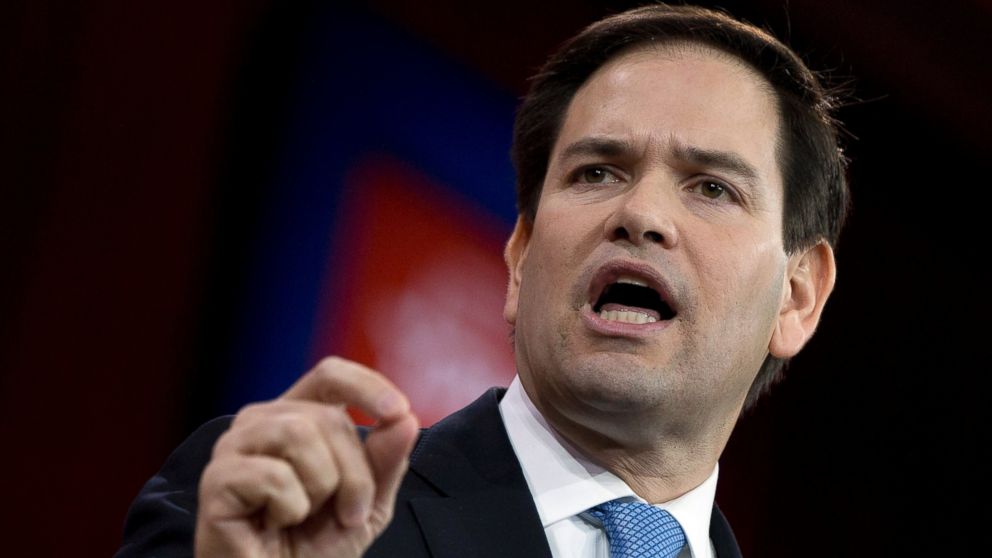Like Jeb Bush, Marco Rubio Has Evolved on Iraq Question
Here's how Rubio responded to the question that has vexed his former mentor.

— -- Over the course of the last few days, likely Republican presidential candidate Jeb Bush has showcased an evolving position on whether he would have authorized the invasion of Iraq in 2003 "knowing what we know now" about faulty intelligence at the time.
But, as it turns out, it is also a question that has vexed one of possible rivals for the Republican presidential nomination, Florida Sen. Marco Rubio.
Asked on Wednesday whether he would have supported the invasion of Iraq in 2003 had he known the country did not possess weapons of mass destruction, Rubio added his voice to the chorus of Republican presidential hopefuls who have said "no" this week.
"Not only would I not have been in favor of it, President Bush would not have been in favor of it -- and he said so," Rubio told Charlie Rose after a speech at the Council on Foreign Relations in New York.
"I don't think the Congress would have voted in favor of the authorization" had they not relied on faulty intelligence, he added.
But Rubio's comments this week appear to differ from his assertions on Fox News' "The Five" in March.
When asked a somewhat different question: Whether it was "a mistake to go to war in Iraq," Rubio responded, "no, I don't believe it was."
"The world is a better place because Saddam Hussein doesn't run Iraq," he said. "We don't know what the world would look like if Saddam Hussein was still there. But I doubt it would look better ... it would be worse, or just as bad for different reasons."
His response this March was very similar to what Rubio said during a Florida U.S. Senate debate in October 2010.
Asked by the moderators whether America was "safer and better off for having gone to war in Iraq," Rubio answered: "I think the answer ultimately is yes. First of all, the world is better off because Saddam Hussein is no longer in charge in Iraq."
Rubio's allies argue that the senator's comments don't actually contradict one another. Condemning the war's justifications and appreciating its outcomes are not mutually exclusive, they say.
Meanwhile, Bush -- who has not yet declared his candidacy but is expected to do in the near future -- has answered the question five different ways in just four days.
When asked in an interview that aired on Monday by Fox News' Megyn Kelly: "Knowing what we know now, would you have authorized the invasion" of Iraq in 2003, Bush initially responded: "I would have and so would have Hillary Clinton, just to remind everybody, and so would almost everybody that was confronted with the intelligence they got."
Subsequently, Bush said he misheard the initial question. And at a town hall meeting in Arizona on Thursday, he came full circle.
"If we're all supposed to answer hypotheticals," Bush said, "I would not, have engaged, I would not have gone into Iraq."
UPDATE: In an interview a New Hampshire radio station Thursday evening, Rubio clarified that he has been answering “two separate questions.”
“The first is if, what I was asked yesterday by Charlie Rose, is if you knew that there weren't weapons of mass destruction, would you have gone forward? And the answer is no one would have,” he said on New Hampshire Now.
“If you believed that Iraq had weapons of mass destruction that they could have passed on to terrorists; that they could have used to massacre their people and start a regional arms race - you absolutely have to to do that,” he added.
“We still would have had to deal with Saddam Hussein, but obviously would have done so differently. The Presidents don't get that luxury. The President has to act on what he is told at the time,” he said. “And so it was not a mistake in the sense that the President made the right decision based on what he believed and had reason to believe, at that time.”